Dear Friends,
2020 was a turbulent, unforgiving year. The outbreak of COVID-19 in March upended classes, performances, and lectures, creating an unseen level of disturbance in the Lab and the wider PD community. Yet amid this chaos, at PD Movement Lab there were also moments of creative activity, connection, and new thought.
Classes shifted to an online format that placed a new emphasis on social interaction. Aspiring choreographers from various universities studied film of how PDML integrates novel therapeutic techniques into its work with PwPs to unlock new creative possibilities. And even in the limited confines of Zoom, students banded together to put together a creative and expressive performance (which you will see in a little bit!).
These positive developments admittedly happened against a debilitating backdrop. With the pandemic terminating our social lives, confining our movement to our homes, and fostering a milieu of anxiety, at times it seemed like the social effects of COVID-19 were tailor made to exacerbate the physical and mental challenges people with Parkinson’s already face. Today, I continue to feel the pandemic’s effects on my mind and body. And I know there are people out there who have experienced incredible, indescribable loss.
As the new year approaches, however, there also has to be value in acknowledging what over the past year has made us hopeful. For me, first and foremost, the emotional fortitude of my fellow PwPs--especially my students--has been inspiring. Their vibrant spirits have buoyed me through the pandemic. Second, I have found ways to counter and mitigate the impact of the pandemic on my PD. Even if they are imperfect, I find comfort in knowing that there are ways to adjust. And last but not least, we have managed to get ourselves to the point where it is reasonable to believe that 2021 holds more promise than 2020. Let us pray that that holds true.
I hope you enjoy reading through all that PD Movement Lab has done over the past twelve months. I hope I can see more of you in-person next year.
Fondly,
Pam
PD Movement Lab 2020
Year in Review
Classes
Pre-Pandemic
Through PD Movement Lab’s core Brooklyn and Manhattan classes, PwPs continued to find new ways to overcome physical challenges. Pre-pandemic, students were busy rehearsing for a piece they were going to perform at a Dance for PD-MJFF joint benefit in May.
Online
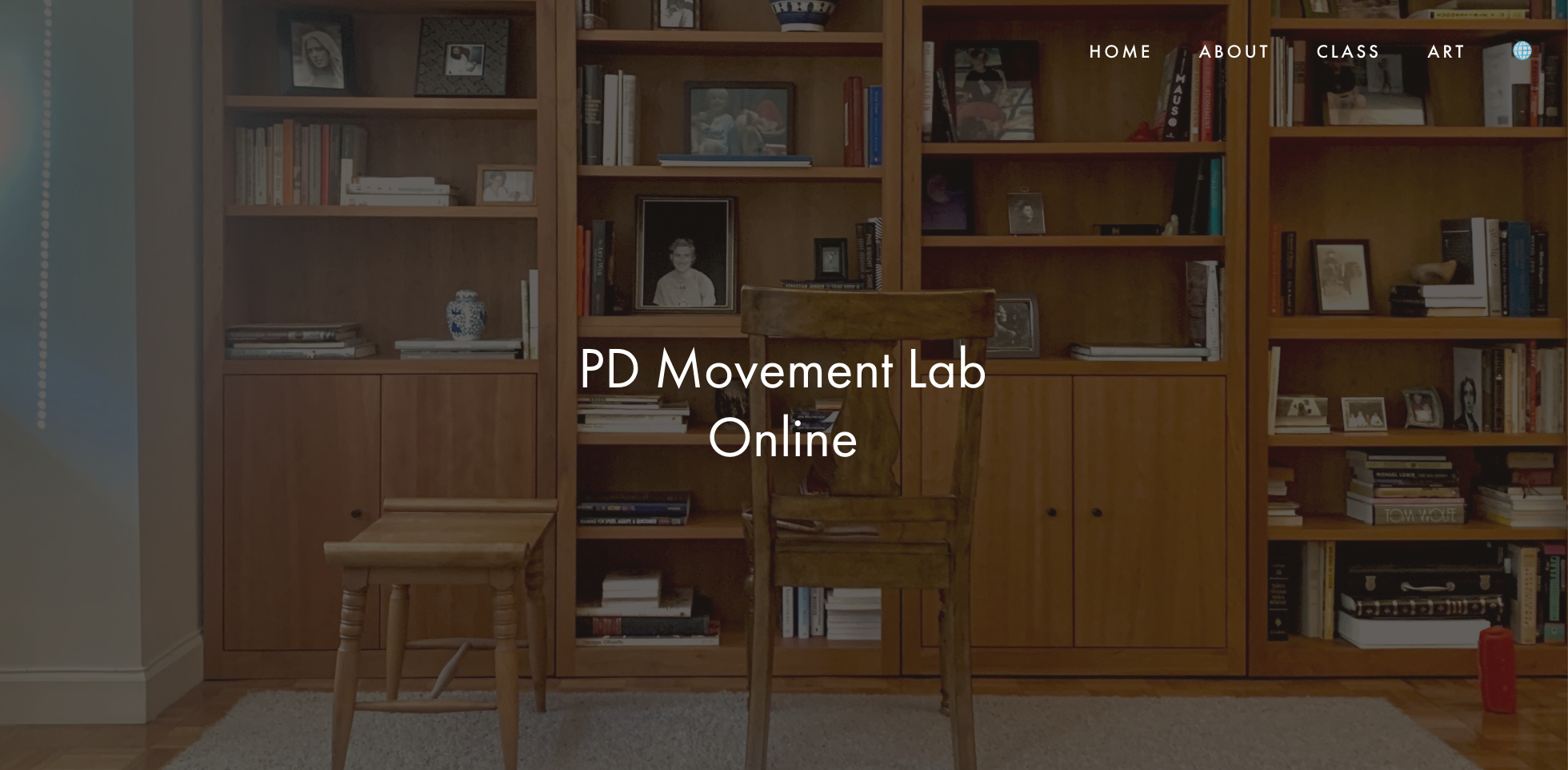
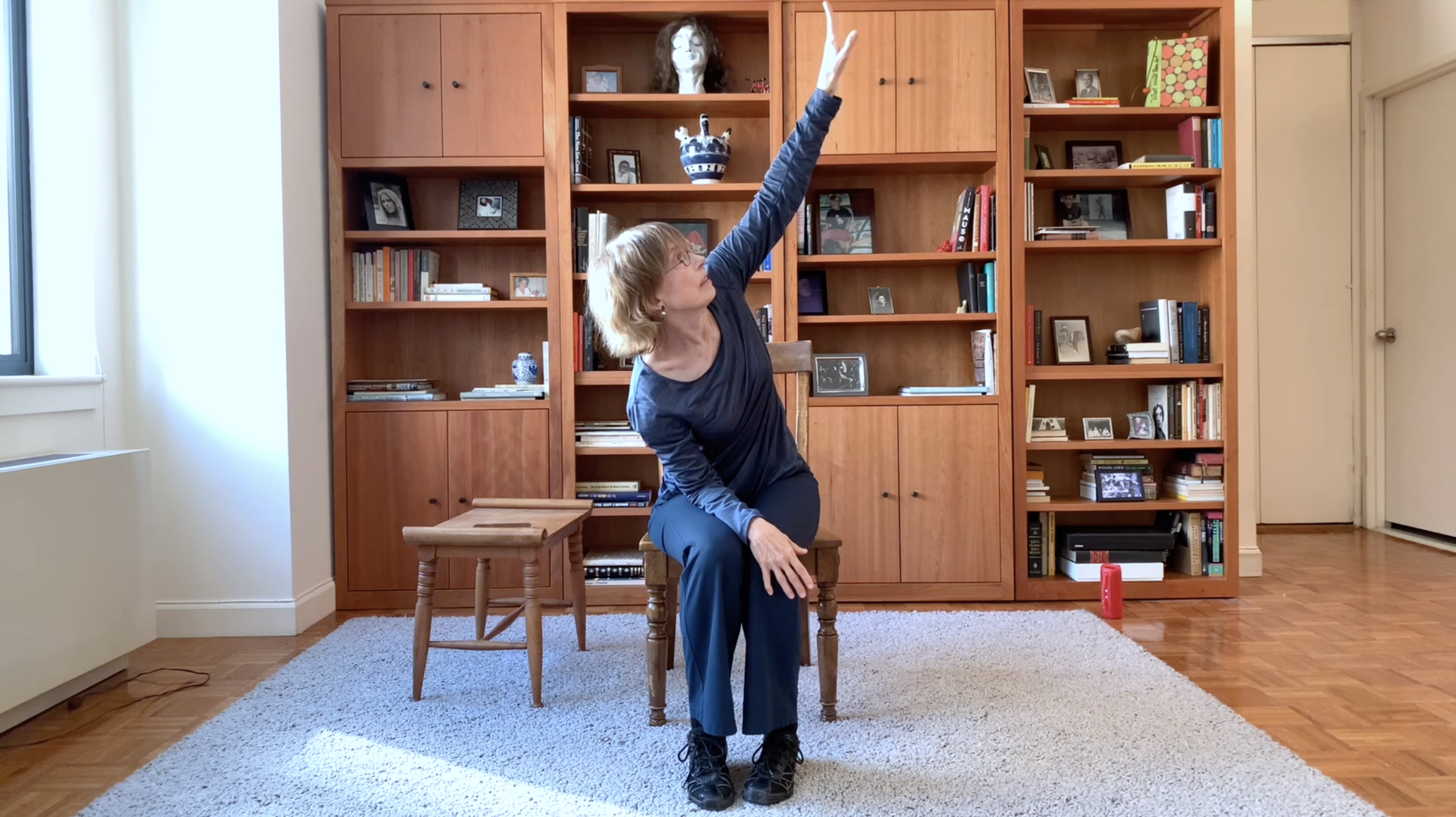
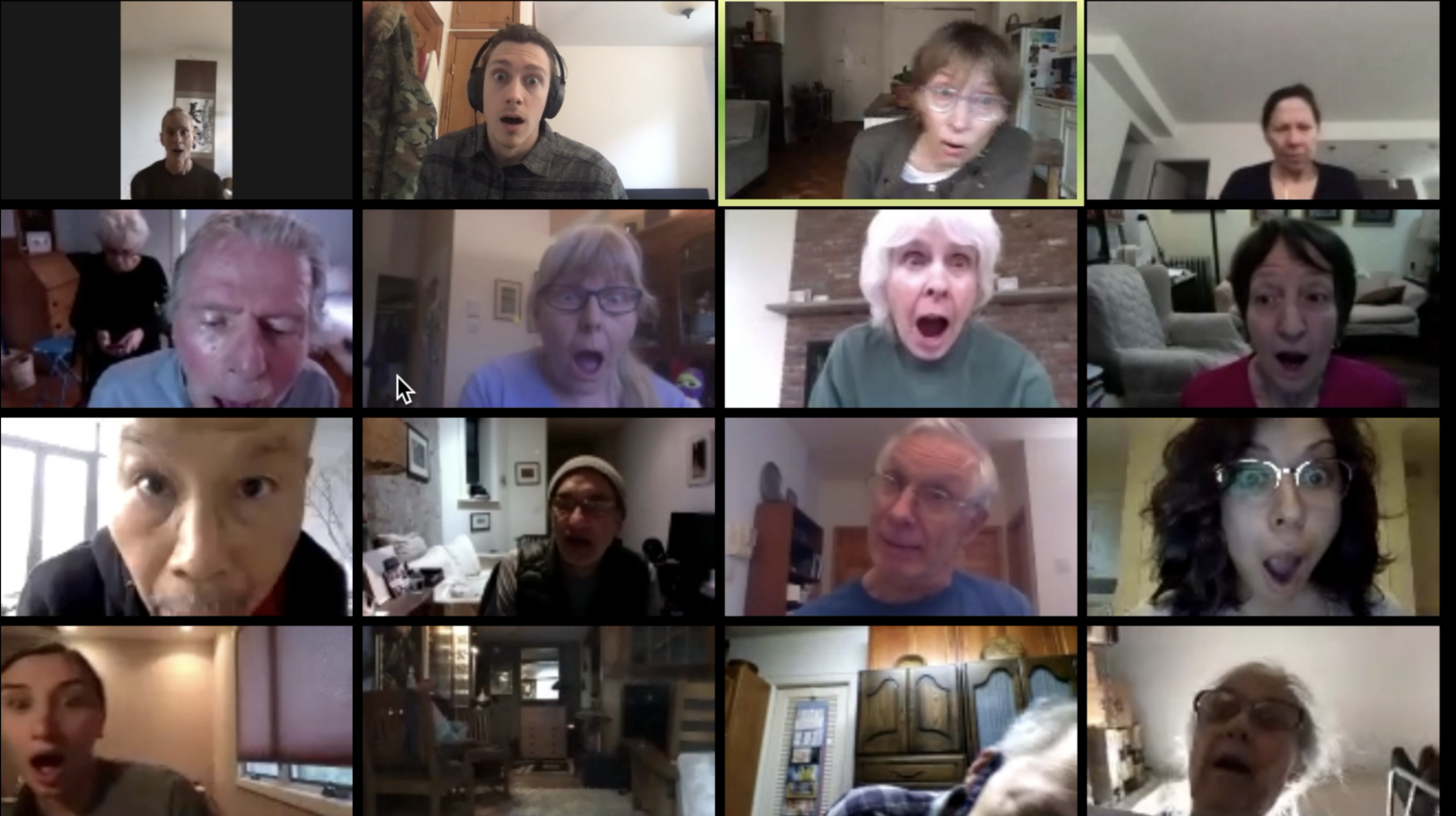
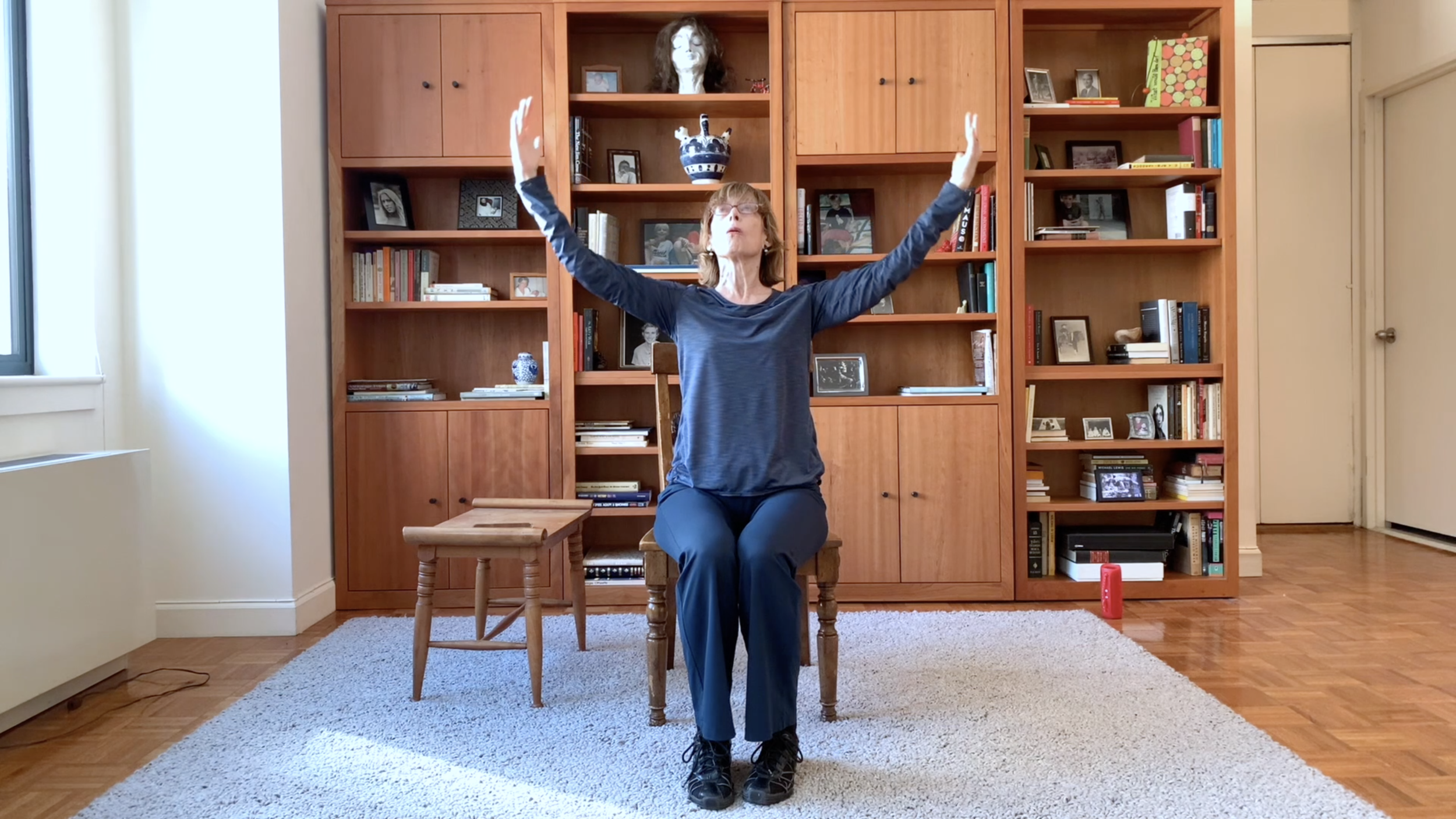
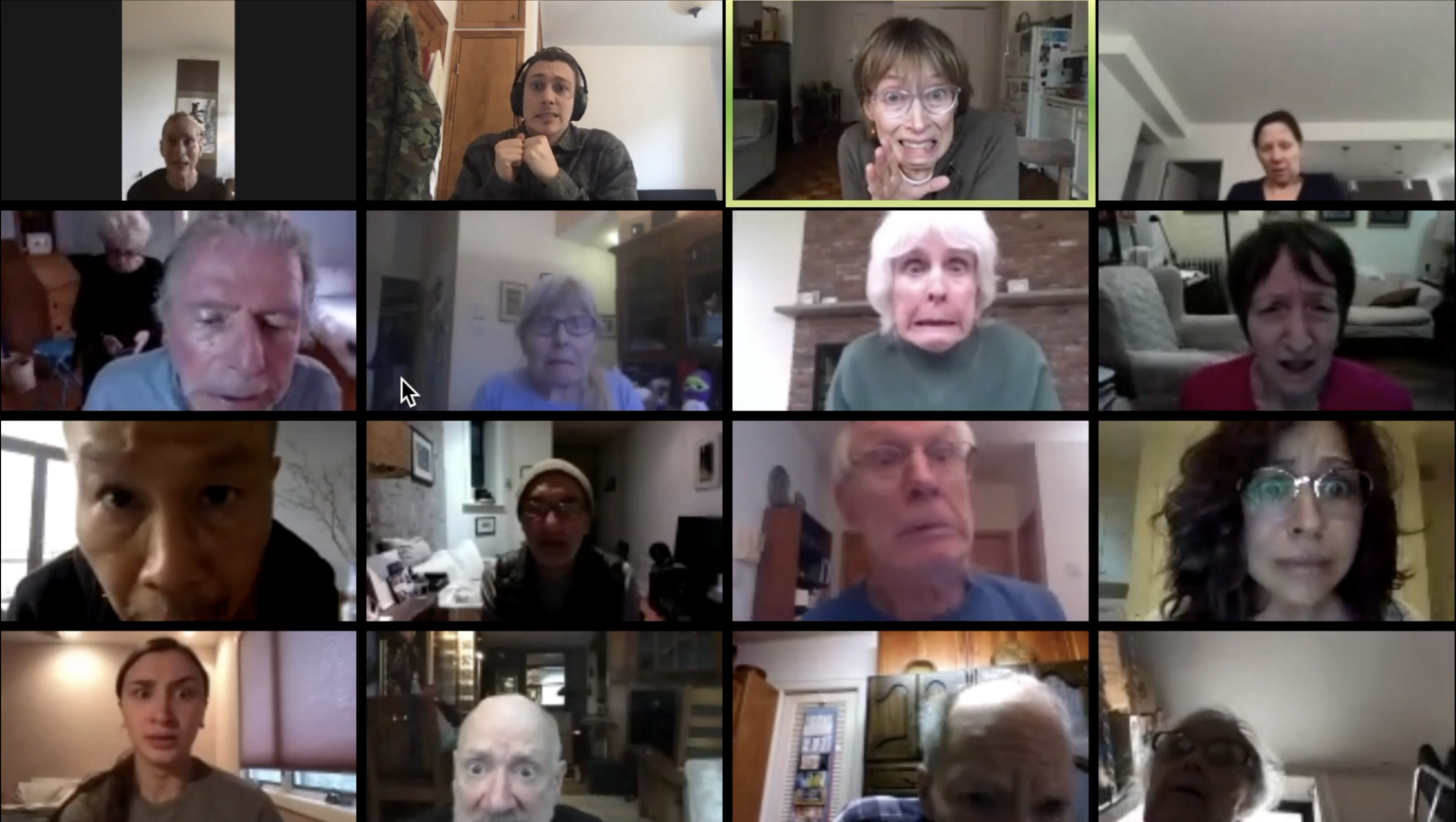
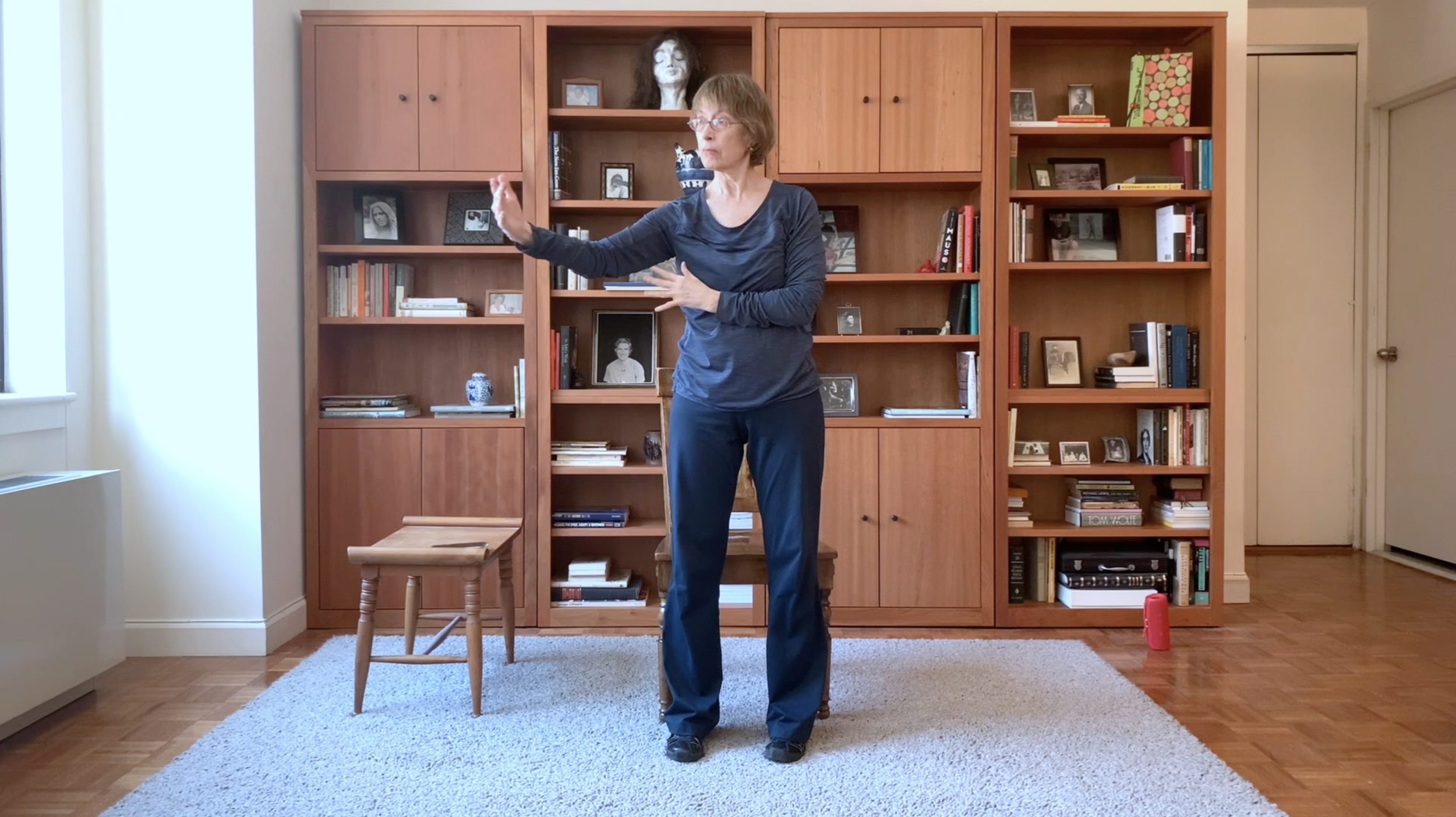
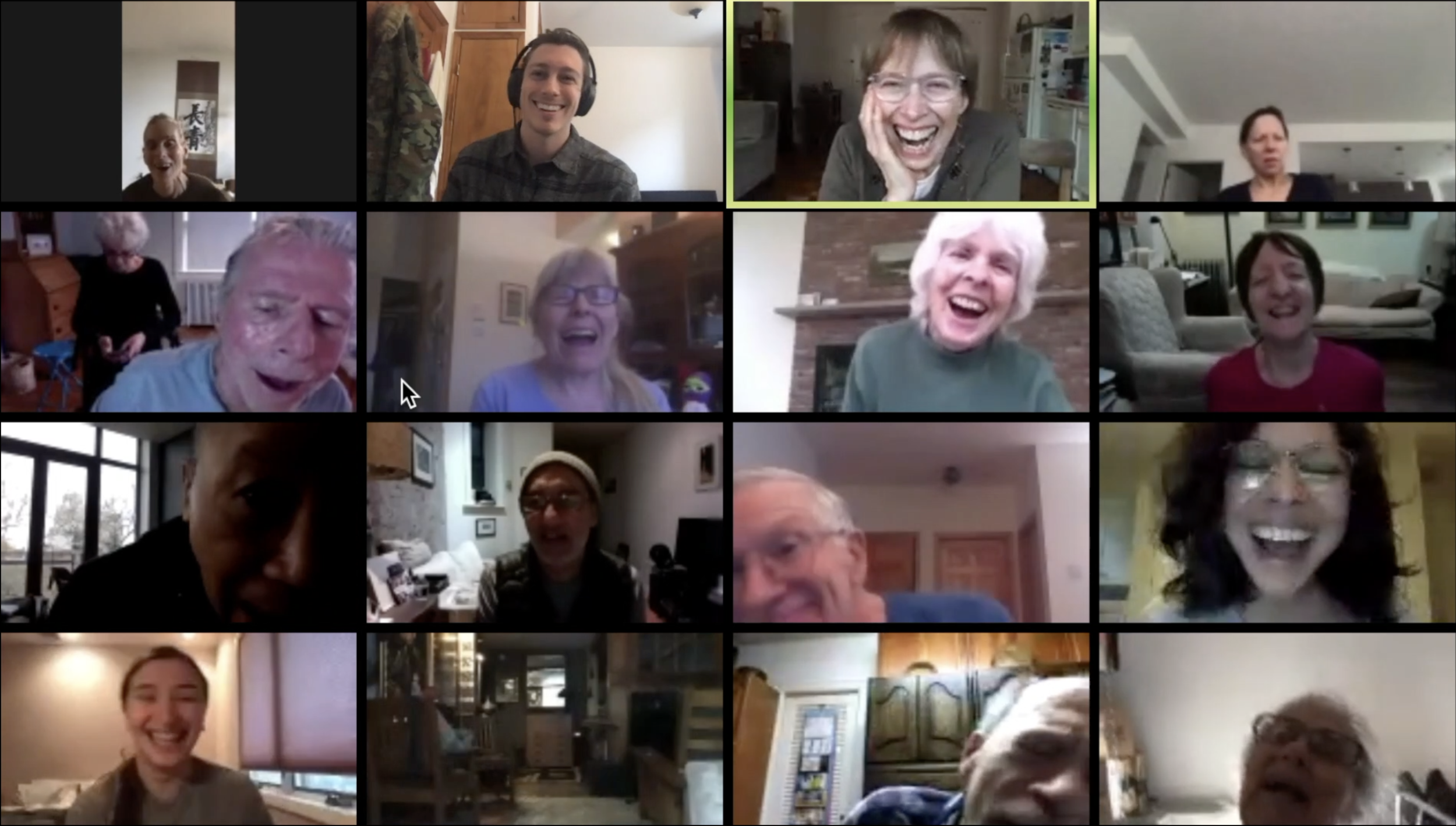
Through PD Movement’s Lab online classes, students continued to work their bodies despite the pandemic, while also deepening their bonds with one another. For me, the highlights of these online sessions were the personal stories peopled share at the end of each class. A few particularly memorable ones included a woman’s adventures as a New York City taxi cab driver in the 70s, a children’s book someone had written for their granddaughter, and a man’s boyhood story of hunting birds in the fields of South Carolina.
If you want to try out a class you can find free, pre-recorded versions of our online sessions here. Live PDML classes will resume as part of the JCC and Dance for PD programs in January 2021.
Dance
Performances
“2020: Boxed In”
Unable to carry out its planned performances, PDML and its students put together a piece entirely inside the confines of the Zoom screen. You can watch the piece below.
(Please Watch Fullscreen & With Sound)
If you want, you can like or share the piece on Facebook.
Zoom Presentations
& Panels
Beyond classes and choreography, PDML gave presentations and participated in panels geared towards academics, occupational therapists, choreographers, and people with Parkinson’s. These panels and lectures included:
“Film & Parkinson’s Panel”
Co-Panelists: Jeff Friedman (Professor of Dance, Rutgers U.), Dr. Roseanne D. Dobkin (Professor of Psychiatry, Rutgers U.), Thomas Lennon (Award-Winning Filmmaker)
Description: An exploration of how Parkinson’s is portrayed in Hollywood and the media, and how certain aspects of the disease go unrecognized
“Choreographing for People
with Parkinson’s”
For: Rutger’s University Dance & Disability Program
Description: Choreographers learned how PDML uses a therapeutic technique known as cueing to enable formalistic innovations in its choreography
“Healthy Aging and Parkinson’s”
Co-creator: David Leventhal, Dance for PD
For: Tufts School of Occupational Therapy
Description: Occupational therapists learned how to integrate elements of dance, like imagery and music, into their therapeutic practice to enhance the mobility of PwPs
“Dance as Science/Science as Dance”
For: Brown University Artist’s and Scientists as Partners Program (ASAP)
Description: Students learned how PDML takes concepts and techniques from dance and applies them in a more analytical manner to help people with Parkinson’s move. On the flip side, the class learned how PDML leverages the neurological phenomenon of cueing to enable formalistic innovations in its choreography.
Press
Dance USA published a series of profiles on their 2019 National Dance Fellows. Here is the profile on me and several other of my talented peers.
Three Take Aways for the PD Community
The extreme conditions of the pandemic forced the Lab (and myself) to search for approaches that better addressed the new needs of the PD community in this time. Here are the three most important take aways from the year:
Teachers, online classes need to have a social component: We now work in a format that limits the full effect of our physical offerings, and in a time where isolation is at a high point. The social interactions that our classes can facilitate have the potential to be as therapeutic as our physical instruction. Every teacher needs to integrate this into their practice until we can resume in-person classes.
People with Parkinson’s, if you are having issues with your balance cycling and squats can help. Emerging from the two month lockdown in NYC my body was not in the best shape, and I could sense I was less than stable. Cycling, recommended to me by PD Outlier Nan Little, and squats, recommended to me by PD Outlier Gary Pauley, helped me regain a good deal of stability. If you want to hear more about the approaches of these two inventive PwPs you can listen and read Nan and Gary’s interviews here and here.
People with Parkinson’s, Caregivers, Doctors, Nurses, PTs, OTs, and anyone who cares about people with Parkinson’s, lobby for environmental action against the pesticide paraquat. This is something I learned reading the wonderful book Ending Parkinson’s Disease by Ray Dorsey, MD; Todd Sherer, PhD; Michael S. Okun, MD; and Bastiaan Bloem, MD.
When paraquat is present in an area, it more than doubles the risk of people developing Parkinson’s Disease. The chemical is so toxic that it has been banned by 32 countries, including China. Yet in the past ten years the use of paraquat has doubled in the U.S.!
I lobbied the EPA by going to the website endingpd.org and following the pop-up form that lead me through the process of sending an email to Andrew Wheeler, a top administrator in the EPA. You can do the same by clicking on the link above. But don’t stop there! Lobby your local representatives as well if you have the chance!
Special Thanks
This year recap would not be complete without acknowledging the people and organizations who support PD Movement Lab. They make everything the Lab does possible. Thank you!
Dance for PD
Dance for PD sponsors the PD Movement Lab Brooklyn class, and provides the space and administrative support needed to run it.
Dance for PD is an organization consistently at the forefront of creating community through dance, and I am proud to partner with them. Thank you David and Maria for all the work you do, I am excited to see what next year brings.
Jewish Community Center of Manhattan
The JCC in Manhattan sponsors the PD Movement Lab Manhattan class, and provides the space and administrative support needed to run it. They did an exceptional job providing me with technical support thorough out the Lab’s transition to an online format. Thank you JCC for supporting PDML and the Upper West Side community at large! Thank you to Whitney for helping us all with our computers, and thank you to Caroline for your administrative leadership thorough out this year!
Jackie Bernard, Amy Bauman, Jamie Desser & Ariel Reich
These are volunteers without PD who, throughout the pandemic, lent their gracious support and wonderful personalities to the PD community. Thank you for everything you do!
In Remembrance
My heart goes out to anyone who lost someone this year. Here are several individuals from my Parkinson’s community who I will miss. R.I.P.
Katie Turner
A no-nonsense woman with a dry wit who regaled us with stories from her early years as a progressive NY taxi driver. She also was a dancer in all of my group pieces, and approached every performance with enthusiasm and dedication. She is sorely missed.
Peter Ecklund
A dear soul who split his time between taking class and accompanying it with his trumpet and French horn. He was a carefree guy, with a creative flair. We will miss him.
Richard Borg
An actor who gave all he had to my piece, Give and Take, and who had a humble, quiet presence. We will miss his elegance.
Bill Miller
A renaissance man—a photographer, a masseuse, a biker, and simply a great guy. Our hearts go out to his wife, Kristin, who stayed with him until the end. I will miss Bill’s smile.
Russ Schumaker
A humble man who dedicated much of his time to volunteer work. He was also an ESL teacher, and a quiet, but bold participant in my class. He will be missed by all.
Mary Good
A very loving, non-judgmental person, who channeled her religious convictions into her passion for social justice. We will all miss her unassuming strength.





